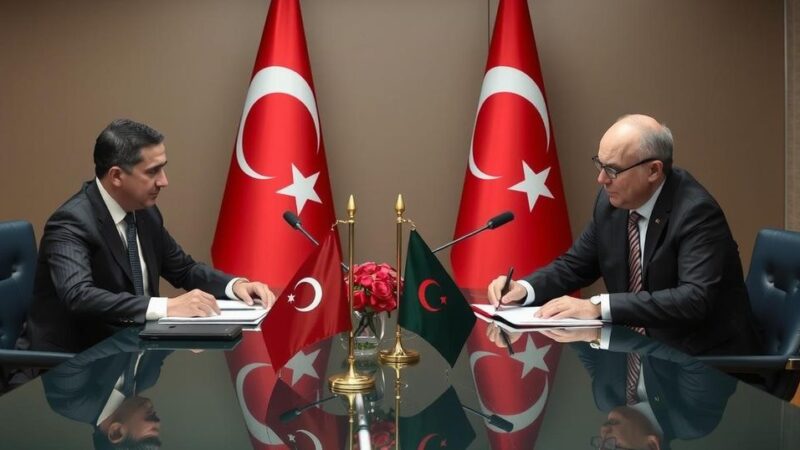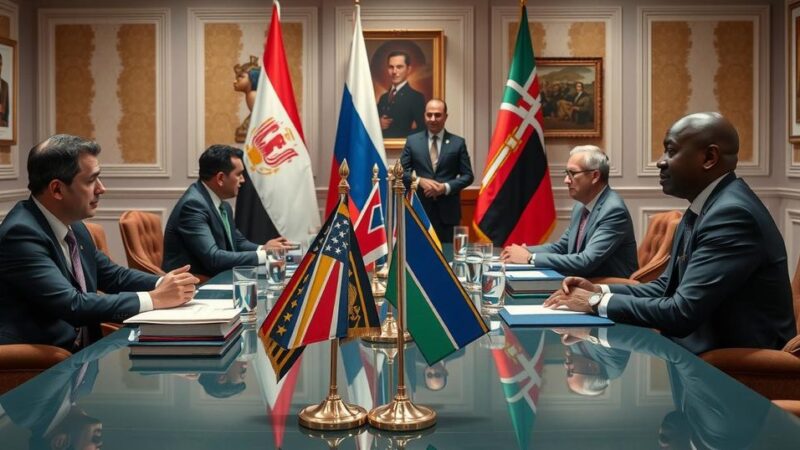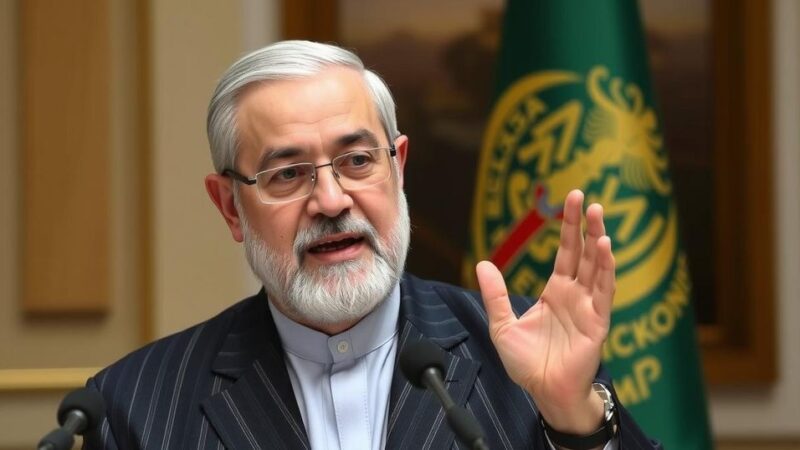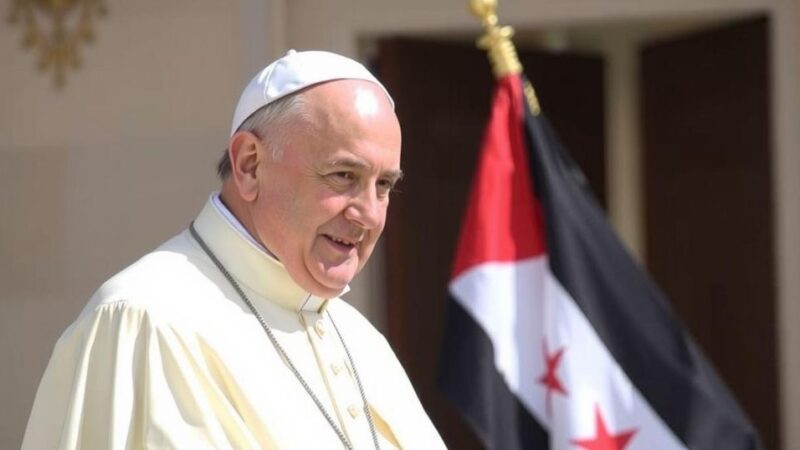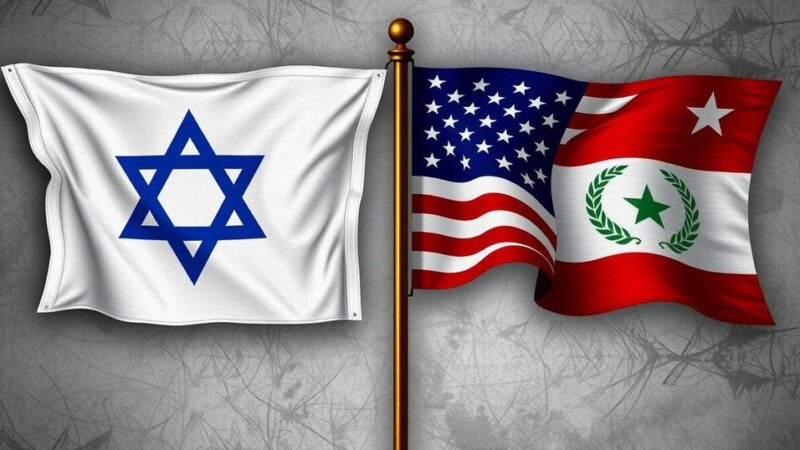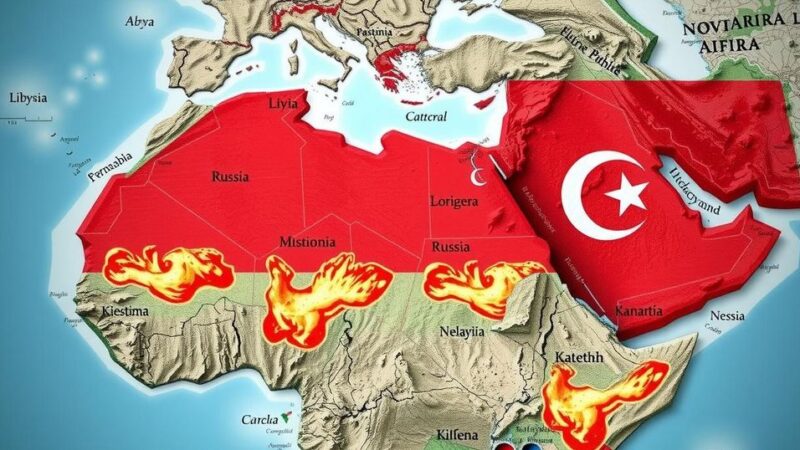On January 13, 2025, Saudi Arabia called for the lifting of sanctions on Syria during talks with diplomats from West Asia and Europe. The discussions, attended by various regional and global representatives, focused on the country’s future following the leadership change from Bashar al-Assad to Mohamed al-Jolani. Sanction relief is seen as essential for Syria’s development, and the international community is weighing their options amid ongoing humanitarian crises.
Saudi Arabia is advocating for the removal of sanctions on Syria during discussions with key diplomats from both the Middle East and Europe. Saudi Foreign Minister Prince Faisal bin Farhan emphasized the importance of lifting these sanctions, asserting that their continuation obstructs the Syrian people’s aspirations for development and reconstruction. The talks, taking place in Riyadh, included Arab officials, representatives from Turkiye, France, the European Union, and the United Nations, and addressed Syria’s future following the recent transition of power to a new leadership under Mohamed al-Jolani, previously a leader of the militant group that overthrew President Bashar al-Assad.
The United States and EU imposed sanctions on the Assad regime in response to its violent suppression of protests in 2011, which ignited a civil war that has devastated the country. Despite easing some restrictions affecting essential services, such as energy and sanitation, the U.S. Treasury has stated that more significant changes depend on observable progress from Syria’s new government. The European Union, through its top diplomat Kaja Kallas, noted that the bloc might consider lifting sanctions if the new leadership in Syria establishes an inclusive government that safeguards minority rights. German Foreign Minister Annalena Baerbock reiterated the need for continued sanctions against individuals responsible for war crimes while expressing that humanitarian aid should reach the Syrian populace promptly.
Historically, Saudi Arabia severed ties with Assad in 2012, endorsing his removal, but recently changed its stance by facilitating a meeting that welcomed him back into regional discussions, underscoring a significant diplomatic shift. Riyadh has also initiated humanitarian efforts by delivering essential supplies to Syria and is exploring avenues for long-term recovery support. Experts suggest that while Saudi Arabia is positioning itself as a leading force in supporting Syria’s recovery, questions remain regarding its commitment of resources and the effectiveness of this support amidst ongoing sanctions.
In summary, Saudi Arabia’s call for lifting sanctions on Syria reflects a broader strategy aimed at enhancing its influence in the region while addressing the dire humanitarian needs of the Syrian population. The international community’s response, particularly from Western powers, remains contingent upon the new administration’s actions towards governance and stability.
Saudi Arabia’s position indicates a careful yet proactive approach to Syria’s evolving political landscape, aspiring for stability while navigating the complex web of international sanctions and humanitarian obligations.
The article examines recent diplomatic dialogues in which Saudi Arabia has urged the lifting of sanctions on Syria, emphasizing the need for support to enable development and reconstruction in the war-torn country. The discussions involve various stakeholders, including regional and European diplomats, and reflect Saudi Arabia’s shifting position towards Syria following the overthrow of Bashar al-Assad. The sanctions, primarily from Western nations, were instituted due to serious human rights violations during the civil war, yet the emerging leadership under Mohamed al-Jolani seeks economic relief to stabilize the country. This evolving context illustrates the geopolitical tensions and humanitarian crises stemming from an extensive conflict that has lasted over a decade.
In conclusion, Saudi Arabia’s advocacy for the removal of sanctions on Syria underscores a strategic initiative to bolster its influence in the region and address the urgent humanitarian needs of the Syrian people. The international community, particularly Western powers, has expressed cautious openness to easing sanctions conditional on the new Syrian government’s commitment to inclusive governance and stability. As Saudi Arabia navigates this complex diplomatic terrain, its actions will be closely monitored to ascertain the potential for effective support and recovery initiatives in Syria.
Original Source: www.thehindu.com


